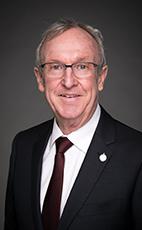Mr. Speaker, I thank my colleague from Lac-Saint-Jean for sharing his time with me. It has been a delight to sit here this afternoon and listen to the debate and the profound, sometimes heated, disagreements about values and the same heated disagreements about the process. It has been interesting to follow.
As I reflect on the small newspapers in my community, three of them have not survived over the past number of years. The one that has survived has survived with layoffs, with the volume inserts increasing. They are about an inch thick in some cases, with advertisements from places like Walmart and Home Depot and a myriad of others. They still report on local issues, service clubs, community events, local sports, cultural events and fundraisers, and they connect and inform the community in an important way. I think we all agree that they are an important part of our communities. That is something we share throughout the House.
How did we get to the point we are at today? I was interested to find that in the United States, in 1949, they introduced something called the fairness doctrine. It had two basic elements. It required people to devote some of their air time and some of their print time to controversial matters of public interest and to ensure that contrasting views regarding those matters were evident. It required those to be present in each instance.
The main agenda of the doctrine was to ensure that viewers and readers were exposed to a diversity of viewpoints, consistent with the things we talk about in the House and that we talk about in democracies. As John Stuart Mill said, one may understand one's position perfectly well, but unless one understands the opposite position equally well, one is not informed enough to make a decision between the two. That is important to look at with respect to the doctrine. That doctrine was taken out of the U.S. in 2011, but the principles are still looked at by a number of media outlets.
Here we have had a number of reports done. The Public Policy Forum, on January 2017, published “The Shattered Mirror: News, Democracy and Trust in the Digital Age”. It looks at the digital age, the type of change that is taking place and its impact, particularly in small communities across our country. Subsequent to that, the heritage committee, in June 2017, issued a report entitled “Disruption: Change and Churning in Canada's Media Landscape”.
All these reports have obliquely, if not directly, called on government to take action to protect the connection of local communities and to protect the notion of what we need to see. We do not want to see one newspaper for the world. We do not want to see Sirius radio reporting on the whole world. We want the focus on our communities, where we live and where we connect.
Reference has been made to the fact that 41 dailies and 235 weeklies have closed over the past few years. Some 10,000 positions have been lost. That is 31% of jobs in the field.
I was interested to read recently a report by the Canadian Media Concentration Research Project. It found that 95% of newspaper endorsements in the 2011 election were for Harper. That was every daily in Canada that endorsed a party, except the Toronto Star, which endorsed the NDP that year. That was roughly three times Harper's standing in the opinion polls at the time, Carleton University Professor Dwayne Winseck wrote in his report.
In the 2015 election, things were not quite as monolithic, but 71% of all newspaper endorsements still went to Harper, and 17 of 23 newspapers that endorsed a candidate endorsed the Tories.
As we look at the debate today, it almost seems that there is identity-based decision-making taking place. We are in agreement that we want there to be no biases or favouritism and that we want total transparency on the issues coming from government and presented by the media. I agree that it is essential that our democracy rely upon the respect and independence of journalists.
I have no doubt that a proper balance of perspectives would be achieved with the composition of the panel. As I have said, there are biases on both sides and assumptions on both sides. Each of us has our biases and ways of proving that what we believe to be true is true.
The organizations that will appoint the members of the panel are operating at arm's length from government. All three reports I referred to have called upon government to act, and we are doing it in that fashion.
We are talking about professionals. We are talking about their expertise and their knowledge for the benefit of the news industry. The best thing government can do is leave the panel to do its work and report back in due time, and that is what is going to happen.
The motion before us suggests that journalists may be able to be bought. It assumes that workers should not be involved in their own decisions, which is contrary to everything we say in terms of the policy development we are working with in government. I disagree with that. A bankrupt press, which is entirely possible if we do not do this, is not a free press. It is no press at all.
I encourage members of the House to stand up for a free press and for a well functioning democracy and to stand up against the motion we have before us.

